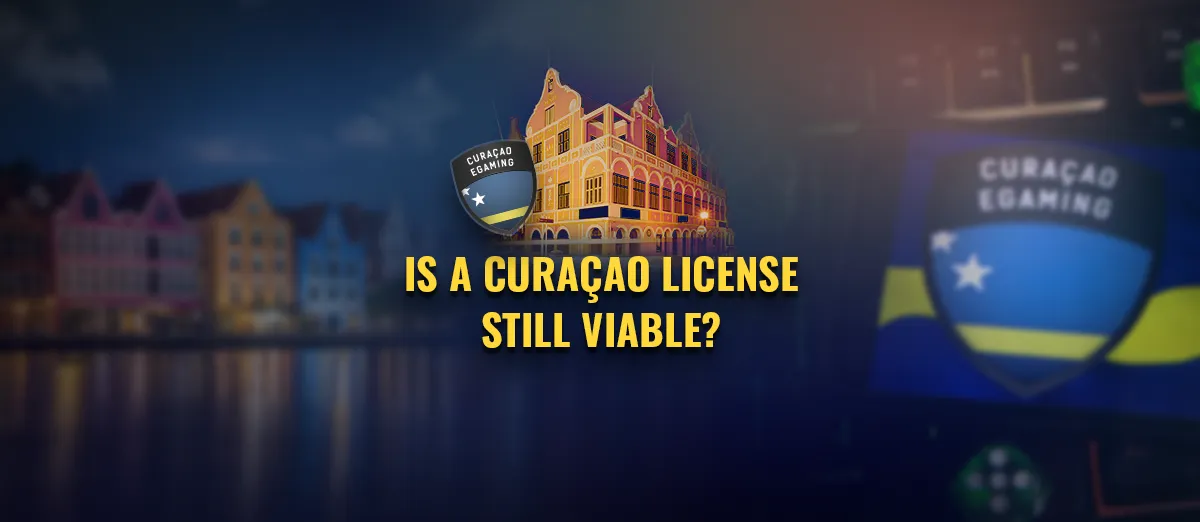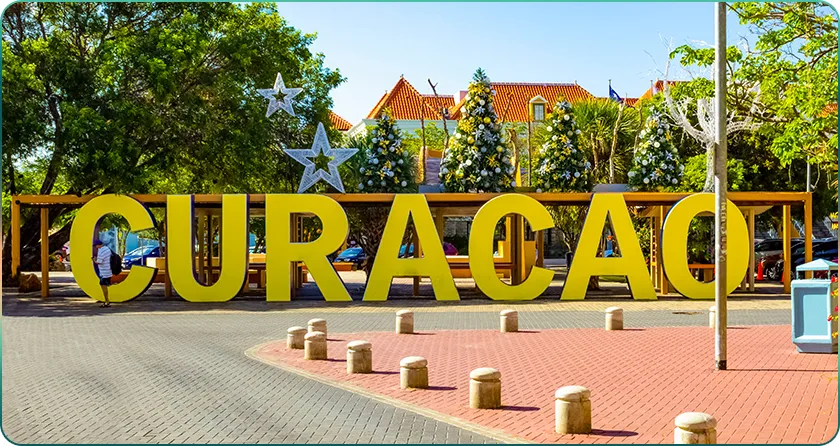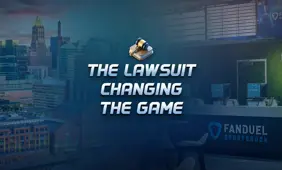Curaçao’s Gaming Licence Reform: What Operators Need to Know?

Curaçao has been a prominent player in the online gambling world for decades, offering one of the most accessible licensing frameworks globally. Known for its affordability and relative simplicity, Curaçao has attracted operators looking for an efficient way to establish their presence in the industry. However, with global regulation tightening – particularly in the U.S. and Europe – the question arises: is a Curaçao gambling licence still worth it?
Currently, Curaçao continues to serve as a gateway for operators aiming to enter the global gambling market. Its licensing regime still offers operators meaningful advantages, including low corporate tax rates and access to flexible markets. As a result, it remains a popular entry option for start-ups, emerging-market operators and cryptocurrency-oriented platforms.
Why Curaçao Licences Have Been So Attractive?
The appeal of Curaçao’s gambling licences stems from several factors. One of the most significant has been the relatively low barrier to entry. Unlike jurisdictions such as the UK or Malta, where operators must meet stringent regulatory standards, Curaçao historically allowed smaller operators to establish their businesses with fewer obstacles.
Another major draw has been the low corporate profit-tax rate, often cited at around 2% for qualifying e-gaming companies. Operators should verify the current rate under the new LOK regime, as the government has introduced updated supervisory and licensing fees that can influence the overall fiscal burden. Even so, Curaçao remains an attractive jurisdiction for companies aiming to maximise profitability within a clearer and still low-tax framework.
The jurisdiction also imposes no VAT or gaming tax on player winnings, further enhancing its financial appeal – though operators should review current fee and levy obligations as reforms continue to evolve.
Curaçao remains open to cryptocurrency and blockchain-based gambling platforms, a rapidly growing segment of the industry. Operators in this space are often drawn to Curaçao due to its relative flexibility in this area.
The Licensing Process and Recent Reforms
Obtaining a Curaçao gambling licence remains relatively straightforward but now follows a clearer, more structured process under the National Ordinance on Games of Chance (LOK), which replaced the former master-licence system. As of 2024/25, sublicensing has been abolished. Licences are now issued directly by the Curaçao Gaming Control Board (GCB) in two categories: B2C (operators dealing directly with players) and B2B (suppliers and service providers). Existing sublicensees were given a transitional period through early 2025 to apply for direct approval under the new framework.
To qualify, operators must first establish a local legal entity – usually a private limited company (N.V. or B.V.) registered in Curaçao – with a registered office, local management, and a designated compliance officer. Applications are submitted via the GCB’s online portal and must include corporate, financial, and technical documentation, along with a compliance plan, AML/KYC policy, and responsible-gaming procedures. The regulator evaluates business integrity, source of funds, and system security before issuing approval.
Once licensed, operators are subject to system testing by approved auditors, annual reporting, and periodic compliance inspections. Licences are typically valid for five years, renewable upon satisfactory review, with annual supervisory fees payable to the GCB. While the process remains faster and more affordable than in stricter European jurisdictions, it now carries far more weight internationally thanks to tighter oversight and transparency standards.
Even with these reforms, Curaçao has preserved its pragmatic balance between accessibility and regulation. The system is stricter than before but remains attractive to legitimate operators seeking a cost-efficient route into global markets without the delays and high capital requirements of top-tier jurisdictions. For many, that balance – affordable yet credible – keeps Curaçao relevant in 2025.
Is It Worth Obtaining a Curaçao Licence Now?
The value of a Curaçao gambling licence largely depends on an operator’s target market and business model. For operators focused on unregulated or lightly regulated markets – such as parts of Africa, Southeast Asia or Latin America – Curaçao remains a viable and attractive jurisdiction because of low cost and crypto flexibility.
However, for operators targeting highly regulated markets such as the U.S. or the EU, a Curaçao licence may no longer suffice. Many jurisdictions require additional local licences, and Curaçao-licensed companies may face exclusion from certain regulated markets or higher compliance burdens.
As a result, Curaçao licences are increasingly seen as stepping stones: a cost-efficient way to test new markets or build brand recognition, but not always the final licence for long-term access to the most mature markets.
Target Markets for Curaçao-Licensed Operators
Curaçao licences have historically appealed to operators targeting regions where regulation is minimal or underdeveloped. These include parts of Africa, Asia and Latin America, where online gambling is growing rapidly but regulation remains nascent.
Emerging markets often lack resources for full regulatory regimes, making Curaçao-licensed operators attractive. Additionally, the jurisdiction’s crypto-friendly stance has made it a hub for platforms seeking tech-savvy audiences in such regions.
However, operators should recognise that even emerging markets are now evolving, and regulatory expectations are rising, so the “easy access” model may not remain as simple going forward.

The Impact of U.S. Regulation on Curaçao’s Relevance
The increasing regulation of online gambling in the U.S. poses a significant challenge for Curaçao. As more U.S. states legalise online casinos and sports wagering, operators targeting the U.S. market must obtain state-specific licences – meaning a Curaçao licence alone often won’t grant access to those markets.
That said, the U.S. market’s growth also presents opportunities: some operators may use a Curaçao licence as a temporary launch platform while preparing for more regulated entry. This strategy allows companies to test offerings and build brand recognition in a highly competitive environment – but with increased scrutiny and reputational risk.
What Other Gambling Licences Are Similar to Curaçao’s?
The Curaçao gambling licence has long been recognised for its accessibility and affordability, making it a popular choice for operators seeking a relatively straightforward market entry. However, there are other jurisdictions around the world that offer licensing options with comparable advantages, especially in terms of low costs, minimal bureaucracy, and market reach. Below, we explore a few of the licenses that are most similar to the Curaçao’s, examining why they share similar traits and what distinguishes them.
Costa Rica Gambling Licence
Costa Rica is another jurisdiction often compared to Curaçao for its very permissive approach to online gambling. Rather than issuing a traditional online-gambling licence, Costa Rica allows companies to register under a general business or “data-processing” activity licence. In practice, operators can base their platform in Costa Rica so long as they do not offer services to Costa Rican residents.
Because there is no dedicated gambling regulatory authority and little sector-specific oversight, the regulatory burden is minimal. That makes Costa Rica appealing for operators seeking low-cost, low-compliance jurisdictions – but its lack of formal gambling licensing also means it may carry lower credibility in highly regulated markets.
Panama Gambling Licence
Panama’s gambling licence is another option that bears similarities to Curaçao’s. The jurisdiction regulates online gaming via the Junta de Control de Juegos (JCJ), and while it has offered licences for remote gaming for some years, the regulatory framework was updated recently (including via Resolution No. 25 in 2022). The regime remains relatively cost-efficient: companies registered in Panama and deriving income from players outside the country may benefit from its territorial tax system – often no income tax, VAT or withholding on foreign-source gambling revenues.
That said, licensed operators may still face fixed fees or levies and must meet requirements such as registering a local entity, appointing directors, and demonstrating AML/KYC controls. The licensing process is more accessible than many European-tier regimes, making Panama an appealing option for smaller or international-facing operators – though its credibility in the most tightly regulated markets may still not match that of UK or Maltese licences.
Isle of Man Gambling Licence
The Isle of Man, located between England and Ireland, offers a gambling licence that is globally recognised and caters well to operators serving international markets. Unlike many low-compliance jurisdictions, it stands out for its rigorous regulatory oversight via the Gambling Supervision Commission and well-established infrastructure for player protection and data security.
While the licence cost and application timeline tend to be higher and more demanding than licences in some offshore jurisdictions, the Isle of Man remains a strong choice for operators seeking credibility, particularly when targeting regulated or European markets.
Seychelles Gambling License
Arguably one from left-field, the Seychelles – a small island nation in the Indian Ocean – has also positioned itself as a favourable jurisdiction for online gambling operators. Although it has recently tightened regulations under the Gambling Act 2014 and the Interactive Gambling Rules 2024, the process remains more accessible and cost-efficient than many high-compliance regimes.
Like Curaçao, the Seychelles appeals to operators targeting non-regulated or lightly regulated markets rather than tightly regulated jurisdictions. One commonly cited advantage is the historically lower corporate-tax/traditional-overlay structure and the ability to structure operations with less local-market exposure. However, the new rules increase transparency and operational controls, meaning that certain perceptions of “discretion” should now be tempered. Furthermore, the Seychelles licence lacks the global market-recognition enjoyed by the top-tier European frameworks – making it less credible in jurisdictions where rigorous licensing is required.
Alderney Gambling License
The Alderney Gambling Control Commission (AGCC) offers a licensing framework that shares some similarities with Curacao, particularly in its focus on global market access. Alderney licenses are recognised for their flexibility, allowing operators to serve players in a wide range of jurisdictions.
While Alderney’s regulatory framework is more robust than Curacao’s, it is still considered one of the more operator-friendly jurisdictions. The AGCC is known for its pragmatic approach to regulation, and this balances player protection with the needs of the industry.
Challenges and Opportunities for Curaçao
Curaçao faces several challenges in maintaining its relevance as a gambling jurisdiction: increasing competition from upgraded licence regimes (UK, Ontario, Germany), growing demand for stricter compliance standards, and the expansion of regulated markets in both the U.S. and Europe.
However, these challenges also present opportunities: as the reforms continue to take full effect through 2025 and beyond – with stronger enforcement, transparent fee structures, and expanded responsible-gaming measures – Curaçao could further establish itself as a credible and cost-effective alternative. Operators still value its flexibility, but they must now recognise that the licence no longer guarantees a “set-and-forget” model.
Future Prospects for Curaçao’s Gambling Industry
Curaçao’s gambling industry is at a crossroads. While its licensing framework has long been a cornerstone of its success, the global gambling landscape is evolving rapidly. To remain relevant, Curaçao must deliver on its promised reforms: stronger oversight, transparent licensing costs, robust enforcement of responsible-gaming standards and meaningful regulatory credibility.
If it does so, the jurisdiction can retain its role in the industry. If not, the low-cost model may erode as operators shift toward more robust licences. Operators that obtain a Curaçao licence in 2025 must invest seriously in compliance – not assume “light regulation”.





Review this Blog
Leave a Comment
User Comments
comments for Curaçao’s Gaming Licence Reform: What Operators Need to Know?